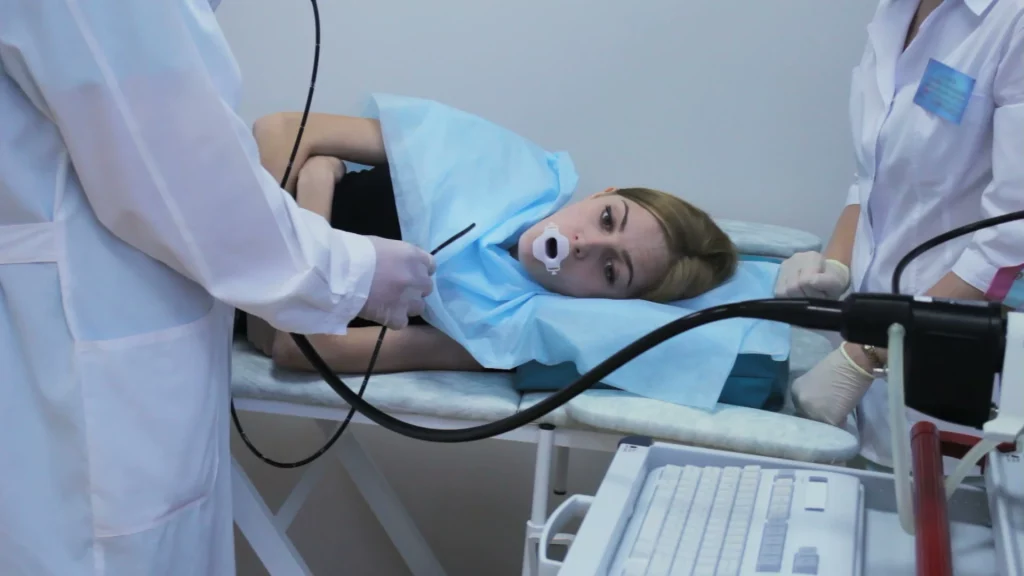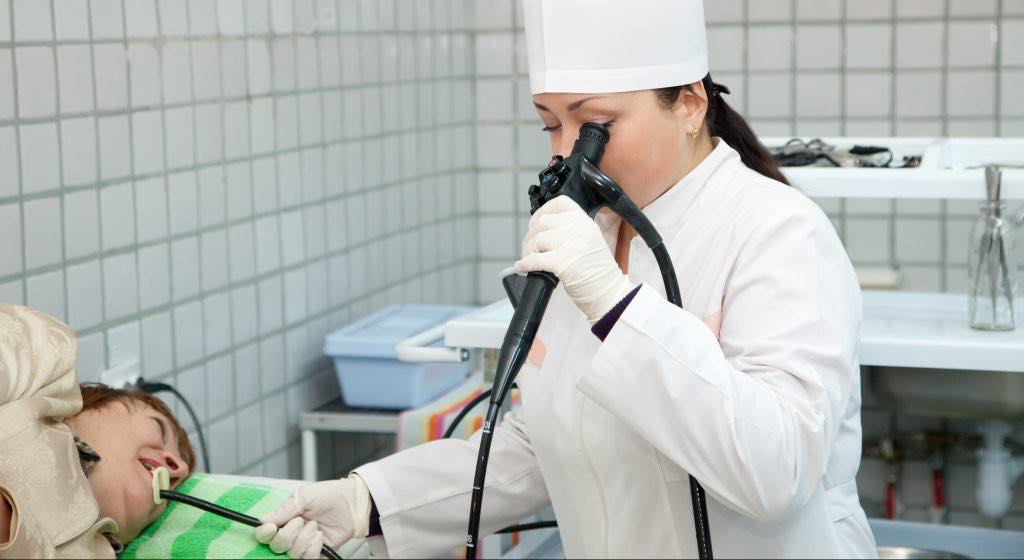
Endoscopy recovery and preparations — everything you need to know

An endoscopy is a procedure used to examine the esophagus, stomach, and upper intestine. During an endoscopy, your doctor will diagnose and treat gastrointestinal conditions such as chronic heartburn, nausea, ulcers, and blockages. Your physician may choose to perform a biopsy during your endoscopy. This means that they will obtain a small piece of tissue to be tested for certain conditions, including celiac disease, gastritis, and cancer.
Endoscopies are safe outpatient procedures. You’ll likely be given a light sedative before your endoscopy to help you stay comfortable during the procedure. Typically, endoscopies take less than 30 minutes to perform. However, you’ll probably stay at the outpatient center or hospital for about an hour after the procedure while your sedation wears off. Taking a few minutes to learn about your endoscopy can help you plan ahead so that you can walk into the procedure worry-free. Below, learn the right way to prepare for your endoscopy, as well as what to expect after it’s over.
How should I prepare for my endoscopy?
Endoscopy prep tip #1: Talk to your physician
When your doctor recommends an endoscopy, there are certain things that you should discuss before the day of the procedure. Making sure that your doctor is familiar with your medical history—including your symptoms, medical conditions, and allergies—is an important step in preparing for any medical procedure. It’s equally important to let them know about any and all medications that you’re currently taking, even over-the-counter drugs and vitamins. Your physician will let you know if you need to change your medication schedule leading up to your endoscopy.
Endoscopy prep tip #2: Give yourself time to recover
You will most likely be given light sedation to help you stay comfortable and relaxed during your endoscopy. It can take up to 24 hours for the effects of the sedative to wear off completely, so plan ahead to have someone drive you home from the procedure. It’s also a good idea to make sure that you have the rest of the day off work so that you can rest. The sedative may have some lingering effects, such as nausea and disorientation. Talk to your employer in advance so that you can give yourself the time you need to recover.
Endoscopy prep tip #3: Don’t eat or drink before your procedure
During your endoscopy, your physician will carefully guide the endoscope through your esophagus, stomach, and small intestine. Your doctor will typically ask you to avoid eating or drinking for a certain amount of time before the procedure. This will allow them to see your gastrointestinal tract more easily. It takes about six to eight hours for food to make its way from your esophagus, through your stomach and small intestine, and into your large intestine. For this reason, your doctor will probably recommend that you avoid eating for at least eight hours before your endoscopy.
Endoscopy prep tip #4: Dress Comfortably
Although your endoscopy will only take about 15 to 30 minutes, laying still for that long can be uncomfortable, even with light sedation. Wear clean, loose-fitting clothes without stiff hems, buttons, or other ornamentation that could cause you discomfort when lying on your side. Your doctor will probably also ask you to leave your jewelry at home and remove your glasses and dentures before the procedure.
What should I do during my endoscopy recovery?
Endoscopy recovery tip #1: Get some rest
The best thing to do after your endoscopy is rest. It’s normal to experience bloating, nausea, or cramping for a short while following your procedure. You will probably also have a mild sore throat for one or two days. Your body will be able to heal faster if you let yourself get some sleep. Throat lozenges or sprays, as well as gargling with saltwater, may also help reduce any lingering throat pain.
Endoscopy recovery tip #2: Watch what you eat and drink
During your endoscopy recovery, make sure to drink plenty of fluids. The required fasting prior to your procedure can dehydrate you. Make sure that you drink plenty of water throughout the rest of the day, even if it hurts to swallow. However, you should avoid carbonated drinks, as they can cause gas and discomfort on an empty stomach.
When the sedation wears off you will probably start to get hungry. Once you are able to swallow normally, you may return to your normal diet. However, during your endoscopy recovery, you may want to avoid certain foods that may cause stomach discomfort, such as foods high in fat. Large quantities of food may also upset your stomach. Remember, you haven’t eaten in about 12 hours. Try eating something light, such as eggs or toast. If your stomach can handle that, then you can start to return to your normal diet.
Your endoscopy results may be available immediately after the procedure. If your physician collected a tissue sample for biopsy, those results may take a few days to come back. If you have any questions or feel like you aren’t recovering correctly after your endoscopy, don’t hesitate to reach out to your doctor.
When you prepare the right way and take care of your recovery, an endoscopy can be a great option for diagnosing and monitoring any issues within your gastrointestinal tract. Don’t let the high medical costs associated with this procedure keep you from getting the medical help that you need. New Choice Health’s Endoscopy Assistance program can help you find affordable financing for your endoscopy. After your procedure, you should be focusing on recovery, not worrying about how you’re going to pay. Use New Choice Health’s Patient Assist today to find discounts and financing options for your endoscopy.
